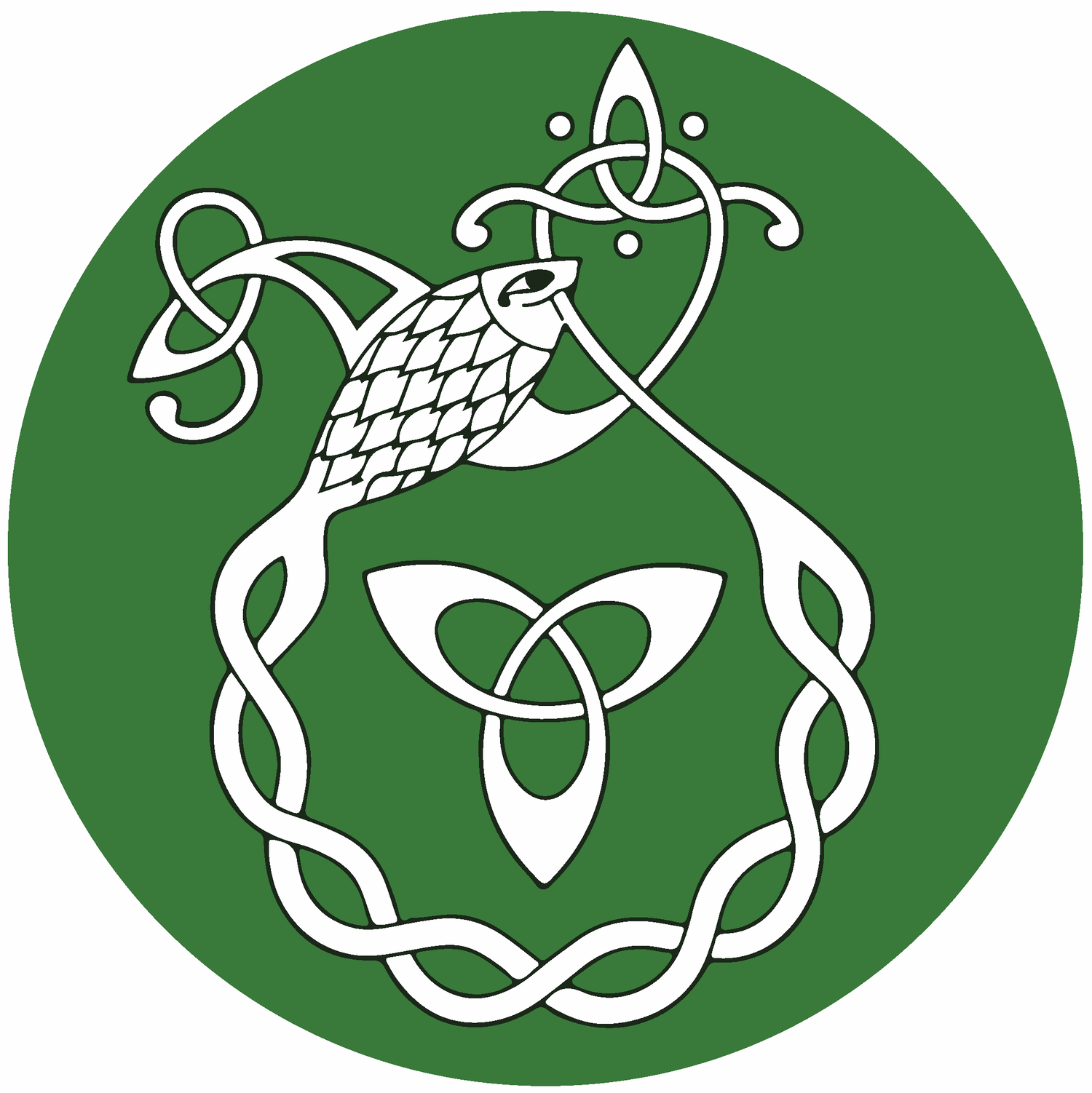Gael Mise (1952)
Pádraig Ó Broin, composed in Toronto, Ontario
“Gael Mise. Ar dhroim an domhain is beag cúis bróid atá agam lasmuigh de sin.
Aon teanga amháin í an Ghaeilge – Gaeilge na hÉireann, Gaeilge na hAlban, Gaeilge Oileán Mhannanáin. Deirfiúr don Ghaeilge na teangacha eile seo - - an Bhreatainis, an Bhriotáinis, an Chornais. Táid na teangacha san go léir beo fós, bíodh is go bhfuil cuid acu níos bríomhaire ná a chéile. Cé go bhfuil dhá theanga Gaeilge dhá labhairt ‘s dhá scríobhadh go flúirseach go fóill, tá teanga na mBreatan níos láidre ná iadsan araon.
Tá litríocht uasal insa na teangacha Ceilteacha, idir phrós agus filíocht, agus rudaí luachmhara ionta ar fad. D’ainneoin cos-ar-bholg a imríodh orthu ar feadh na gcéadta mbliain anuas, tá stair leanúnach litríochta acu i dteannta a chéile atá ag síneadh siar go dtí deireadh Ré Cré-umha. I láthair na huaire seo tá na teangacha Ceilteacha ag bronnadh sár-litríochta do litríocht an domhain arís, agus tá impireacht spioradálta na gCeilteach á leathnú ar fud na cruinne.
Taobh amuigh des na críocha Ceilteacha féin maireann an cuid is mó desna cainteóirí Gaelacha i gCeanada. Ní gá ach Ceap Breatuinn a lua. Chuir na hAlbanaigh fúthu insa dtír sin agus ní hamháin gur chloíadar lena dteangain dhúchais ach gur dheineadar í d’fhorbairt. Níl aon Ghaelteacht Éireannach i gCeanada, mo thrua, ach is fíor a rá go bhfuil go leor againn scapaithe ar fud na Mór-Roinne. Táimid ag iarraidh orthu sin, agus ar na gCeiltigh eile, Gaeil agus Breatain, cuidiú linn leis an IRISLEABHAR CEILTEACH a bhunú agus a choimead beo. Ba mhaith linn síntiúisí d’fháil ó dhaoine comh maith le cumannaí. Beidh fáilte freisin roimh ábhar fiúntach le foilsiú. Má tá dán nó amhrán, scéal nó scéala ar bith agat féin, a léitheoir, agus má thig leat é a scríobh i nGaeilge, cur chugainn é, más é do thoil é.
Ní bhaineann IRISLEABHAR CEILTEACH le haon chreideamh nó le haon chumann phoilitíocht fé leith. Aon chuspóir amháin atá againn: gnéithe éagsúla den tsaol agus de shaíochta na nGael d’aontú níos dlúithe. Tá sé beartaithe againn, le cúnamh Dé, dánta agus prós, idir scéalta agus aistí, na dtrí dtíortha a chló-bhualadh. Níos déanaí b’fhéidir cuirfimid altanna i mBreatainis, i mBriotáinis agus i gCornais i gcló leis.
Dúirt daoine áirithe linn, go cineálta ach go daingean, go dteipfidh orainn irisleabhar mar í seo choinneailt ar siúl ar an dtaobh seo den bhFarraige Mhóir. B’fhéidir go bhfuil an ceart acu - - b’fhéidir nach bhfuil. Bainfimís triall as in ainm Dé.
Ní chasfaimís ár gcúl le fearaibh an domhain. Gaeil sinne agus sinne ‘nár nGaeil.”
“I am a Gael. In the rest of the world it is little the cause of pride that I have outside that.
Gaelic is one language - the Gaelic of Ireland, the Gaelic of Scotland, the Gaelic of the Isle of Man. The sisters of Gaelic are these other languages - - Welsh, Breton, Cornish. Those languages are all still alive, though some may be more powerful than the others. Although there are two Gaelic languages that being spoken and being written abundantly still, the language of Wales is stronger than them both.
There is a noble literature in the Celtic languages, between prose and poetry, and valuable things in all of them. Despite the oppression that was played upon them for hundreds of years, they have a continuing literature along with each other that stretches back to the end of the Bronze Age. At present the Celtic languages are bestowing surpassing literature on the literature of the world again, and the spiritual empire of the Celts is being spread around the world.
Outside of the Celtic lands themselves the largest portion of Gaelic speakers lives in Canada. One only has to mention Cape Breton. The Scottish settled in that land and not only did they stick to their heritage language but they developed it. There is no Irish Gaeltacht in Canada, my sorrow, but it is true to say that there are enough of us scattered throughout the continent. We are asking them, and the other Celts, Gaels and Welsh, to help us to establish the IRISLEABHAR CEILTEACH and to keep it alive. We would like to get donations from people as well as societies. Worthy material to publish will also be welcomed. If you yourself have a poem or song, a story or news at all, reader, and if you can write in Gaelic, send it to us, if you please.
IRISLEABHAR CEILTEACH is not associated with any religion or any specific political party. The only objective we have: various forms of the life and the wisdom of the Gael to unite more closely. We have planned, with God’s help, poetry and prose, between stories and essays, of the three countries to print. Later maybe we will put articles in Welsh, Breton and Cornish in print also.
Someone said to us, kindly but firmly, that we will fail to keep a journal like this running on this side of the Great Ocean. Maybe they are right - - maybe they aren’t. Let us try in God’s name.
Let us not turn our backs on the men of the world. We are Gaels and Gaels we are.”
Adapted from: Ó Broin, Pádraig. 1952. “Ó’n Eagarthóir.” Irisleabhar Ceilteach. 1.1. Cló Chluain Tairbh: Toronto.
For citation, please use: Ó Broin, Pádraig. 1952. “Gael Mise.” Ó Dubhghaill, Dónall. 2024. Na Gaeil san Áit Ró-Fhuar. Gaeltacht an Oileáin Úir: www.gaeilge.ca
